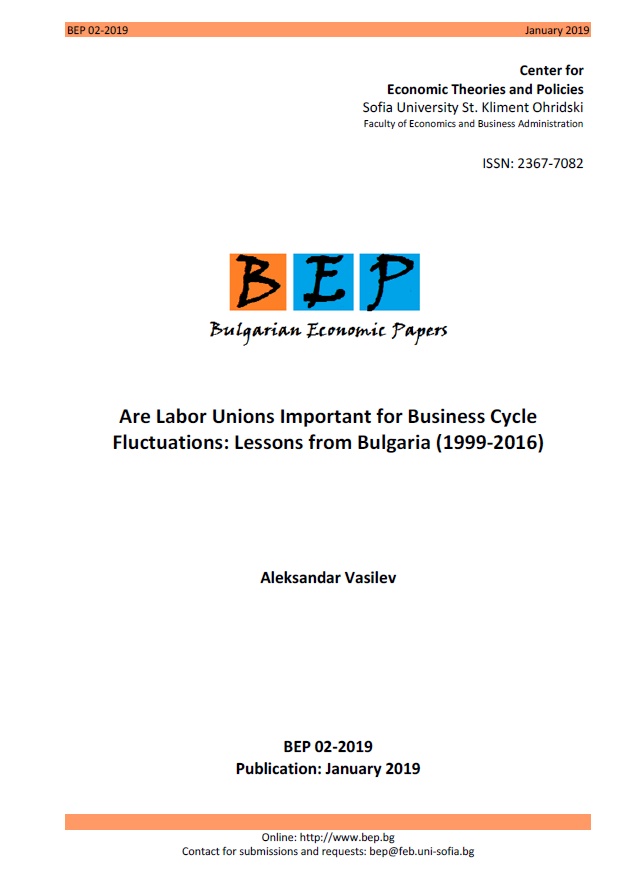Are Labor Unions Important for Business Cycle Fluctuations: Lessons from Bulgaria (1999-2016)
Are Labor Unions Important for Business Cycle Fluctuations: Lessons from Bulgaria (1999-2016)
Author(s): Aleksandar VasilevSubject(s): Economy, National Economy, Business Economy / Management
Published by: Софийски университет »Св. Климент Охридски«
Keywords: business cycles; general equilibrium; labor unions; indivisible labor; involuntary unemployment
Summary/Abstract: n this paper we investigate the quantitative importance of collective agreements in explaining fluctuations in Bulgarian labor markets. Following Maffezzoli (2001), we introduce a monopoly union in a real-business-cycle model with government sector. We calibrate the model to Bulgarian data for the period following the introduction of the currency board arrangement (1999-2016), and compare and contrast it to a model with indivisible labor and no unions as in Rogerson and Wright (1988). We find that the sequential bargaining between unions and firms produces an important internal propagation mechanism, which fits data much better that the alternative framework with indivisible labor.
Journal: Bulgarian Economic Papers
- Issue Year: 2019
- Issue No: 2
- Page Range: 2-28
- Page Count: 27
- Language: English

